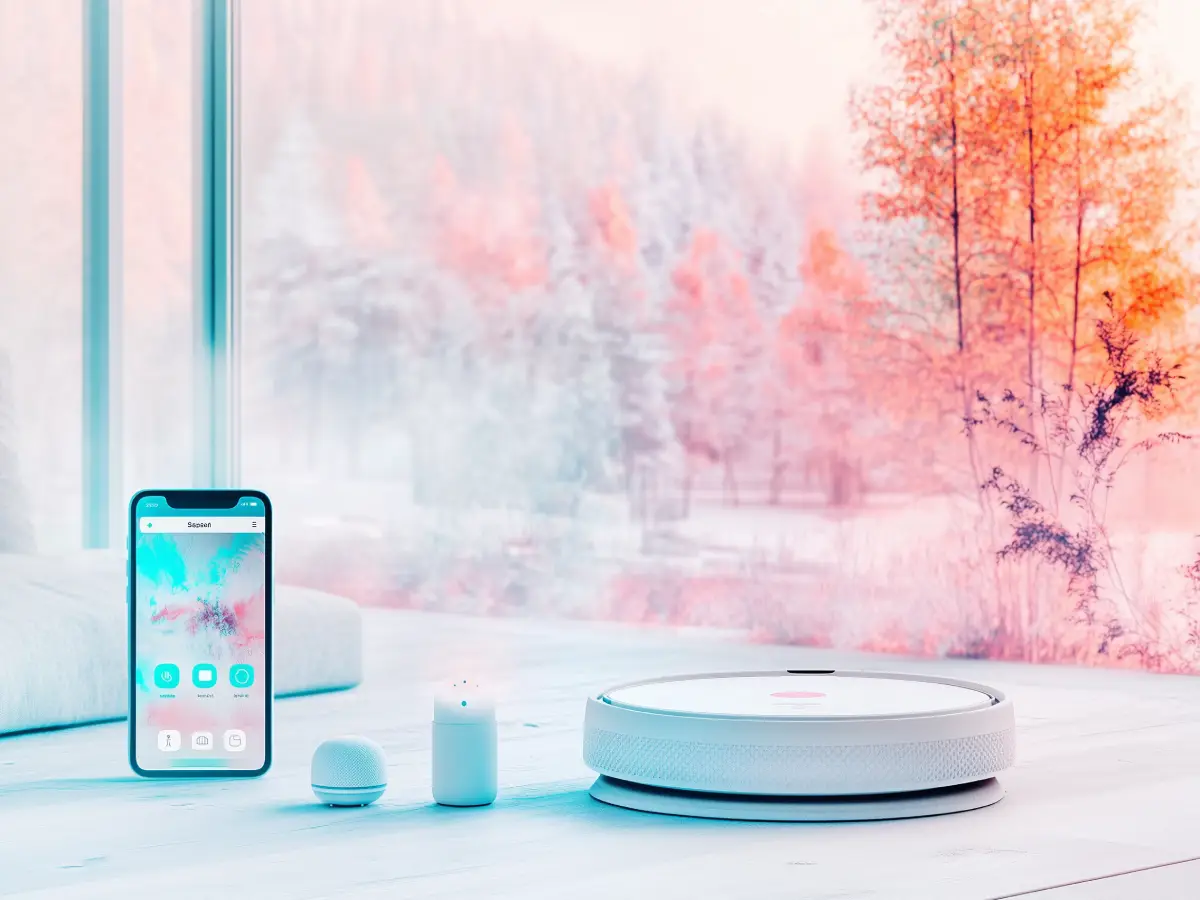Matter x Apple: the promise of a farmonized future
Matter is presented as the Holy Grail of interoperability for connected devices.
This standard, supported by giants like Apple, Google, and Amazon, aims to end the fragmentation of smart home ecosystems.
For Apple, integrating Matter into the Home app allows users to control a wide range of devices without worrying about compatibility.
But it seems that robot vacuums represent a particular challenge.
Why are robot vacuums a problem?
- Complex functionality: Unlike a smart bulb or a connected plug, a robot vacuum requires** advanced management such as room mapping, selecting areas to clean, and adjusting modes (vacuuming, mopping, etc.)**.
- Interaction with other devices: Automating tasks, like starting cleaning after leaving the house, requires seamless synchronization with other HomeKit accessories.
Apple and the calculated choice of delays
Apple is known for its caution when introducing new features.
This delay can be seen as a strategy to uphold high quality standards.
Potential reasons for the delay
- Optimizing user experience: Apple wants robot vacuums to work flawlessly upon integration, which requires thorough testing.
- Adapting Siri: Voice control is at the heart of HomeKit. Apple might be enhancing voice interactions to ensure intuitive commands.
- Avoiding initial bugs: Unlike some competitors, Apple prioritizes a no-compromise approach to avoid negative feedback at launch.
Adapt or wait?
A frustrating setback
This delay may hinder HomeKit users who were counting on native integration to automate their cleaning routines.
The lack of support results in:
- The inability to program scenarios like “Start vacuuming after leaving the house.”
- Increased reliance on manufacturers’ apps to control these devices.
Temporary solutions
In the meantime, users can:
- Configure Siri shortcuts via manufacturers’ apps.
- Turn to third-party hubs like HomeBridge for partial integration, as often happens.
What about the manufacturers?
Some manufacturers, like Roborock, are anticipating this change by announcing the compatibility of their products with Matter. However, they still have to wait to offer full integration within Apple’s ecosystem.
This delay may also slow down innovation among manufacturers who rely on Apple’s momentum to accelerate Matter’s adoption.
Buy now or wait?
Why buy now?
- Prepare for the future: Some Matter-compatible models will be ready as soon as the feature launches.
- Versatile devices: Vacuums from brands like Roborock or Ecovacs remain highly capable even without native integration.
Why Wait?
- Optimized experience: For strictly Apple users, waiting ensures perfect integration into the Home app.
- Smooth voice commands: Siri will likely offer better control of vacuums after the update.
Matter: a standard that will withstand delays
Apple’s delay should not overshadow Matter’s significance for the future of smart homes.
By unifying protocols, Matter promises a simplified and universal user experience.
Apple’s delay, while frustrating, reflects its commitment to doing things right. In the long term, this could even strengthen user trust in HomeKit-compatible products.

